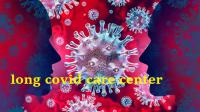Категории
Теги
-
#Sex Doll
#ai sex dolls
#love doll
#AF doll
#sex toy
#TPE sex dolls
#WM Doll
#Real love dolls
#realistic sex doll
#Silicone Reborn Dolls
#silicone sex doll
#curvy doll
#pregnant sex dolls
#sex dolls for sale
#pregnant love doll
#Real Doll
#Piper Doll
#Sino Dolls
#Sex Dolls
#silicone sex dolls
#COVID-19
#post covid brain fog
#long covid brain fog
#COVID
#Brain fog
#LongCovidCareCenter
#Long COVID-19 Symptoms
#post covid fog
#Neurologic symptoms
#Long COVID
#Memory Loss
#COVID19 headache
#Mild COVID
#Post COVID Fatigue
#Dysautonomia
#POTS
#AsianstarCNC
#CNC machining factory
Архив
What effect does mild COVID have on brain injury?
-
Автор Ella Joy - Категория Культура и искусство - #post covid brain fog #Mild COVID - 246 просмотров
COVID-19 can cause cognitive symptoms in some patients, such as short-term memory loss, difficulty concentrating, difficulty remembering words, and long covid brain. While most of the initial research focused on patients hospitalized with severe COVID symptoms, it is clear that most long-term COVID patients only became ill after a mild case of COVID.
Even mild cases of COVID can affect the brain. Using magnetic resonance imaging (MRI), the researchers compared the brains of the same patients before and after they were infected with COVID-19. They found changes in brain regions that may be associated with common symptoms, including loss of smell and taste, headaches and memory problems.
What this means for long-term COVID treatments
The How Long Will Symptoms Of Brain Fog Last After Being Infected With Covid-19? study is one of the first to focus on patients with mild disease. With nearly 800 volunteers, it is also the most extensive COVID-19 study involving brain scans. Researchers at the University of Oxford in the United Kingdom administered cognitive tests and scanned the brains of 785 patients aged 51 to 81. Brain imaging is part of a UK Biobank project. The 30-year long-term study, which began in 2006, followed 500,000 volunteers between the ages of 40 and 69 to study how genetics and the environment influence the development of different diseases. When the coronavirus pandemic hit, researchers had already scanned more than 40,000 people, making it the perfect tool to study before and after scans of the same patients.
The study includes:
401 patients infected with SARS-CoV-2 between March 2020 and April 2021. Most of them were mild, but 15 people were hospitalized and two required intensive care. These patients were initially scanned before the pandemic (2014 to 2019) and then again about four to five months after their COVID-19 diagnosis. 384 COVID-free volunteers. The group was matched to the COVID-19 group for age, sex, race, scan interval, and risk factors such as blood pressure, obesity, smoking, socioeconomic status, and diabetes.
The results clearly show that even mild cases of COVID can have real effects on the brain. Less than six months after infection, some patients had a 2 percent reduction in brain volume and gray matter thickness in specific regions of the brain, including the orbitofrontal cortex and parahippocampal gyrus.
These losses may explain some of the symptoms seen in COVID patients. For example, the orbitofrontal cortex, located in the front of the brain, above the eye sockets, has extensive connections to sensory areas, which could explain the loss of smell and taste. Additionally, the parahippocampal gyrus, located just above the hippocampus at the base of the neck, plays a crucial role in memory, decision-making, and spatial processing, possibly explaining cognitive symptoms such as brain fog, memory loss, and anxiety.
We all lose brain volume as we age, but 2% is almost ten times the annual loss experienced by older adults through normal aging. Also, post-COVID, patients struggled more on cognitive tests, possibly due to shrinkage of a specific part of the brain called the cerebellum, a brain structure also implicated in cognition. Patients took longer to answer questions that measure attention, visual screening ability and processing speed. There were no differences in memory, reaction time or reasoning tests.
The study is not the first to show that COVID affects cognitive function. Multiple studies have shown that COVID-19 patients score significantly lower than healthy individuals on tests of attention, memory, and executive function. A worrying finding was that the difference between infected and healthy patients increased as patients got older. For people in their 50s and 60s, the difference is small, but for people in their 70s and 80s, the difference is huge. It's hard to say whether this happened because younger patients recovered faster, or because they weren't as severely affected as older patients.
Treatment at the LongCovidCareCenter was initially designed to help post-concussion patients recover from ongoing symptoms. After just one week of post covid brain fog treatment, more than 90% of patients showed improvement. So far, we've seen similar results in Long COVID patients who passed our current screening criteria. To discuss your specific symptoms of COVID-19 and determine whether you may be treated in our clinic, please schedule a consultation.

